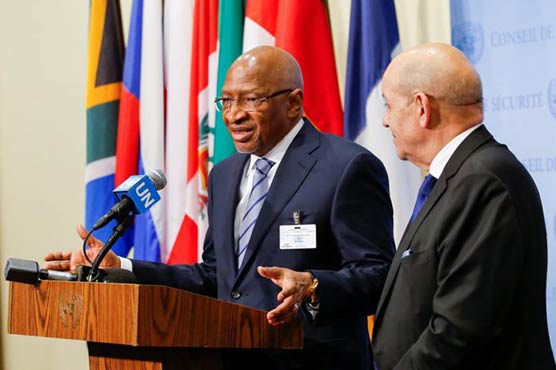Malian PM resigns as anger mounts over massacre

BAMAKO (DNA) – Mali’s prime minister resigned along with his entire government on Thursday following criticism over their handling of an upsurge of violence in the centre of the country and a massacre last month that left 160 people dead.
A statement from President Ibrahim Boubacar Keita’s office said he had accepted Soumeylou Boubeye Maiga’s resignation, along with those of his ministers, two weeks after mass protests erupted over the rising tide of violence.
Lawmakers from both ruling and opposition parties had submitted a motion of no confidence against the government on Wednesday, blaming Maiga and his administration for failing to clamp down on the unrest.
“A prime minister will be named very soon and a new government will be put in place after consultations with all political forces” from both the ruling and opposition sides, the statement from Keita’s office said.
The president had on Tuesday said in a televised address that he had “heard the anger”, without explicitly naming the prime minister.
The government had come under mounting pressure over its handling of violence in the restive Mopti region and especially a massacre on March 23 in which 160 people were killed in the village of Ogossagou near the border with Burkina Faso.
Members of the Dogon ethnic group — a hunting and farming community with a long history of tension with the nomadic Fulani people over access to land — were accused of being behind the mass killing.
Tens of thousands of people took to the streets of Bamako on April 5 to protest against the upsurge of violence, accusing the government of not doing enough to stop it.
The protest was called by Muslim religious leaders, organisations representing the Fulani herding community, opposition parties and civil society groups.
Mali has been struggling to restore stability since extremists linked to Al-Qaeda took control of the country’s vast desert north in early 2012.
While the militants were largely driven out in a French-led military operation that began in January 2013, huge areas are still in the grip of lawlessness, despite a 2015 peace agreement with some armed groups that sought to definitively stamp out the threat.
Since then, militants have shifted from the north towards the more densely populated centre of the country, where they have sharpened ancient rivalries and ethnic conflicts that date back years.
Militant attacks have also spread to Burkina Faso, Chad and Niger, forcing tens of thousands of people from their homes.
Related News

The largest halal fair in Russia will open on 14 MAY
ISLAMABAD, /DNA/ – More than 40 thousand visitors and 4.5 thousand goods according to HalalRead More

Saudi Foreign Minister to visit Pakistan
DNA ISLAMABAD: A high-level Saudi delegation, led by Foreign Minister Prince Faisal bin Farhan binRead More


Comments are Closed